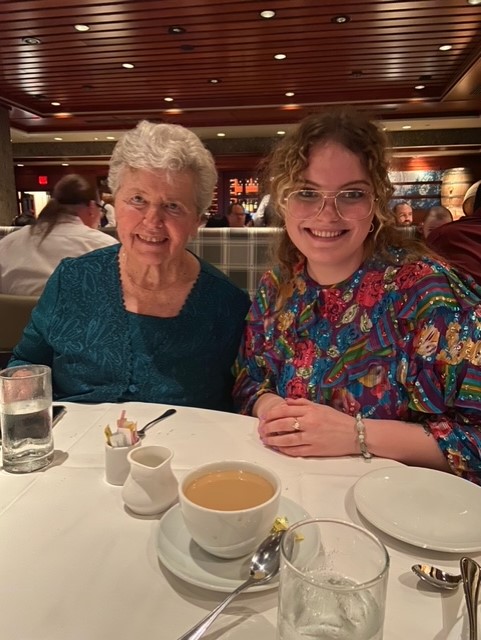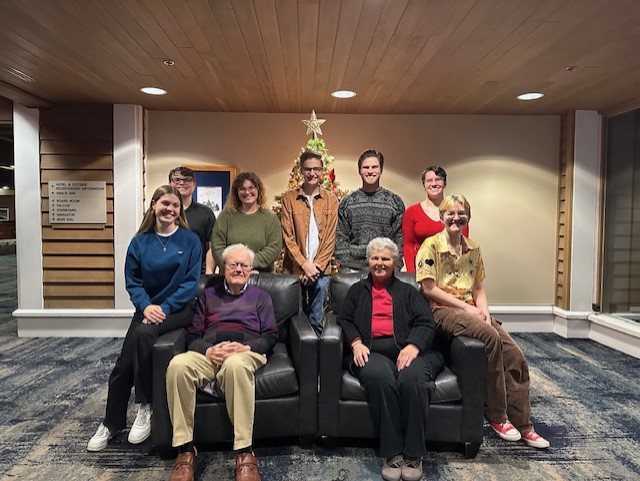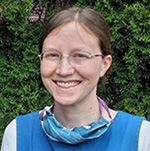by Eileen Kinch
When Donella Clemens was nominated to be the Mennonite Church’s moderator-elect in 1990, she took time to pray and think. She was the first woman to be nominated for this position, and she knew some people might not appreciate it. But, as she pointed out in Franconia Conference News at the time, “The call came from the church; therefore, it must be the church’s issue to deal with, not mine.”
Clemens grew up in Belleville, Pa., in what had been the Conservative Mennonite Conference, now Rosedale Network. Her uncles were in leadership positions, and two of them were bishops. They strongly believed that if the church calls someone to do something, one must say yes; the voice of the church is as the voice of God. So Clemens said yes to the invitation to be the Mennonite Church’s moderator.
She also said yes to other invitations. She became Franconia Conference’s first woman moderator in 1997. She was also the first woman board chair of Christopher Dock Mennonite High School (now Dock Academy).
“Countless times I was the only woman on a committee,” she said. Sometimes she suggested ideas and the men did not listen. Then a man on the committee would make the same suggestions, and the rest of the committee implemented them. At times Clemens felt resistance from men but chose to interpret the resistance in a productive way. Her background in social work helped her navigate that resistance on many occasions.

Clemens never sought leadership roles; they came to her. “I … feel so strongly that it’s out of God’s call on my life, that these calls came…. It’s what God put in front of me.”
During her time as Franconia Conference moderator, Clemens felt it was God’s direction that Eastern District and Franconia Conference work together.
“Jesus so clearly talks about having us come together…to work together and to be a light that loves each other,” Clemens said in a recent interview. She enjoyed the many committees that formed between members of Franconia Conference and Eastern District Conference around common interests and activities. One committee involved passionate librarians from each conference.

A challenge for Clemens during her time as Franconia Conference moderator was discussion around homosexuality that resulted in Germantown being removed fromout Franconia Conference. The way people were treating each other at the time “was much worse than any decision that we would make” as a conference, she said.
Clemens hopes that energy that goes into division can instead be put toward the love of Jesus. When the body of Christ comes together and learns to know each other through the love of Jesus, Clemens said, “everyone benefits.”
Clemens served briefly as Franconia’s delegate to the General Board of the Mennonite Church. In 2000, she joined the Franconia Conference Ministry Team for six years and worked with Pennsylvania congregations Blooming Glen, Plains, Perkasie, and Deep Run East, as well as the congregations in Vermont.
Since then, she served on the board of what is now called Anabaptist Mennonite Biblical Seminary. She has helped congregations with pastoral searches. She has also served on numerous committees and the ministry team at Perkasie (PA) Mennonite, her home congregation.
We are grateful for Donella Clemens’ work to help lay the foundation of what would become Mosaic Conference, as well as to encourage others to respond to the call of God and the church.

Eileen Kinch
Eileen Kinch holds a Master of Divinity degree, with an emphasis in the Ministry of Writing, from Earlham School of Religion. She and her husband, Joel Nofziger, who serves as director of the Mennonite Heritage Center in Harleysville, live near Tylersport, PA. They attend Methacton Mennonite Church. Eileen is also a member of Keystone Fellowship Friends Meeting in Lancaster County.
The opinions expressed in articles posted on Mosaic’s website are those of the author and may not reflect the official policy of Mosaic Conference. Mosaic is a large conference, crossing ethnicities, geographies, generations, theologies, and politics. Each person can only speak for themselves; no one can represent “the conference.” May God give us the grace to hear what the Spirit is speaking to us through people with whom we disagree and the humility and courage to love one another even when those disagreements can’t be bridged.
